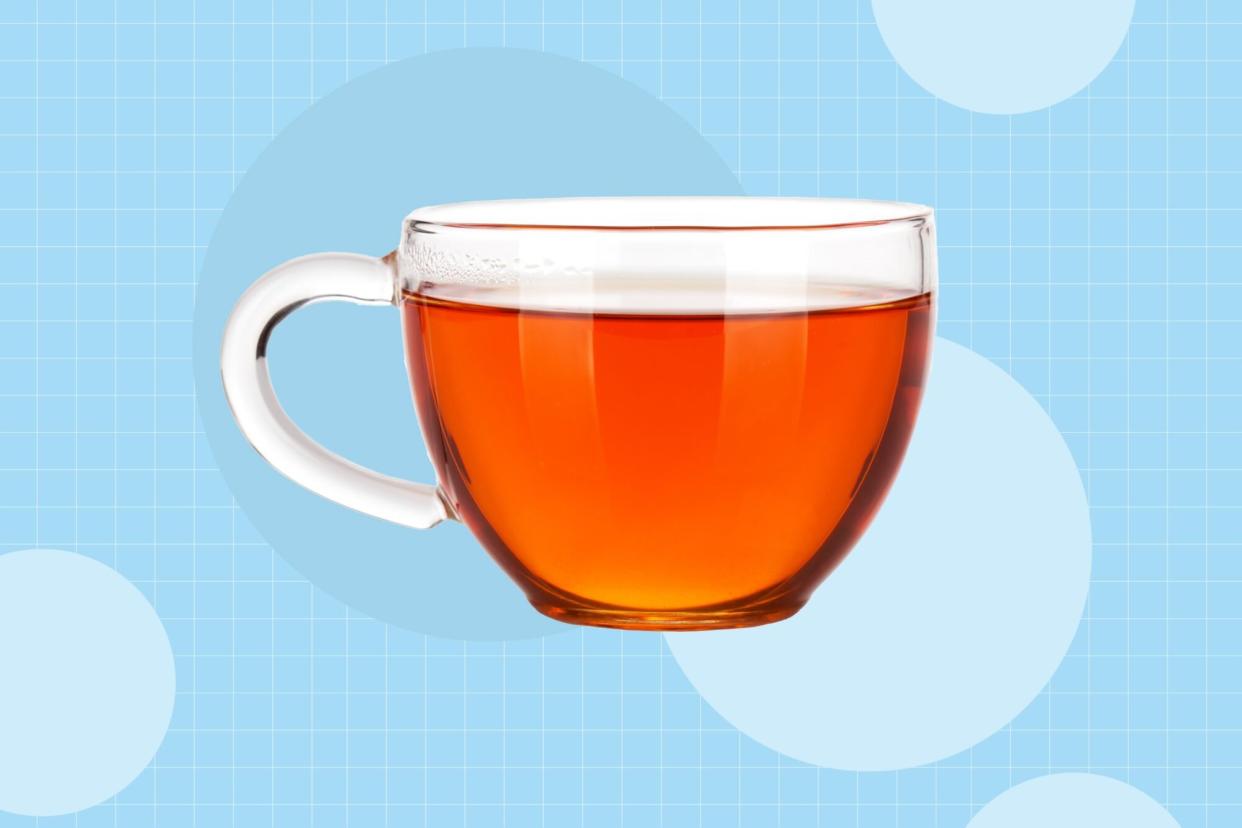Drinking Black Tea Might Help Lower Risk for Early Death, According to a New Study

Getty Images
Coffee or tea? Turns out, you can't go wrong by choosing either if you're seeking a cozy beverage that can potentially extend your life.
Earlier this month, we shared four ways coffee can help you live longer. And now, a new study published August 30 in the Annals of Internal Medicine suggests that tea—in particular, black tea, which was analyzed due to the fact that it was the most common variety consumed by study participants—may help improve longevity, too. According to this new study conducted by the National Institutes of Health, people who drink just two cups of black tea per day had a 9% to 13% percent lower risk for all-cause mortality than non-tea drinkers, including lower risk of death from heart disease and stroke.
Learn more about what's hiding inside black tea that could deliver a solid dose of health benefits, why two cups might be the sweet spot, plus other ways to score similar longevity gains if tea isn't your top choice.
What This Tea Study Found
Researchers crunched the numbers for 498,043 individuals age 40 to 69 who were enrolled in the health database UK Biobank between 2006 and 2010. Each person completed a baseline questionnaire and physical exam, which included blood, urine and saliva samples.
About 85% of these people said they were regular tea drinkers, and a whopping 89% of those reported drinking black tea. As we mentioned, the investigators likely dove into the potential health impacts of this variety (over other anti-inflammatory teas like green tea, ginger tea and peppermint tea) because it was consumed by so many people. (Fun fact: After water, tea is the most commonly consumed beverage on the planet, according to the United Nations.)
Related: 11 Soothing Tea Recipes for a Relaxing Night
Most of those who did drink tea had between two and five cups daily, and 19% of tea drinkers gulped more than six daily cups.
In addition to the quanti-tea, ahem, quantity of tea, participants also shared:
The temperature they took their tea, either warm, hot or very hot (we'd like to add iced for future consideration, please!)
Whether they added milk or sugar
If they also drank coffee
The individuals didn't report their serving size or steeping time, however.
Using this data, the scientists followed up after a median of just over 11 years, keeping an eye on participants' diet, lifestyle and health and taking into account their ethnicity and socioeconomic status. Between the start and end of the study, 29,783 people died. Although they could not prove that black tea consumption caused a longer life, those who drank up to two or more cups per day had a 9% to 13% lower mortality risk than those who did not drink tea. This held true regardless of:
If they also drank coffee
If they added milk or sugar
Tea temperature
While there was no link found between cancer and lung disease death and tea intake, the scientists found a lower risk for death from heart disease and stroke among black tea drinkers.
There didn't appear to be any additional benefits gained by drinking more than three daily cups. A June 2022 study hinted that about five cups of tea might be the sweet spot for blood sugar and gut inflammation, however. Still, all of that caffeine can do a number on your ability to sleep and could also trigger heartburn, increased blood pressure, jitters or shakiness, so consuming tea in moderation—as with many things—is probably best. Two cups of black tea will add about 120 milligrams of caffeine to your day, which should be a safe amount for anyone who's not caffeine-sensitive, most health experts agree.
Related: The Best Antioxidant-Rich Foods
The Bottom Line
This new longevity study found that drinking about two cups of black tea per day might help reduce risk for certain causes of death, likely due to the tea's polyphenol content. Additional research is needed in the future to control more details like the strength of the tea, the ounces poured per cup and the steeping time, and to prove any potential cause-and-effect relationship.
If black tea isn't your jam, you can also score an ample amount of antioxidants, including polyphenols, from food sources like berries, cocoa, most veggies, herbs, spices, nuts and seeds.
Up Next: Some Antioxidant-Rich Foods May Lower Risk for Dementia, According to New Study

